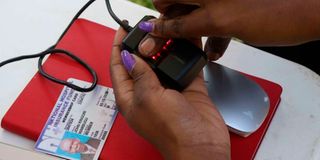Why all should look at proposed NHIF law changes with sobriety

The opinion article published in the Daily Nation, “NHIF Bill reeks of mischief, needs review”, by Wycliffe Osabwa, is misleading and based on falsehoods.
Statistics show that a million Kenyans are driven into poverty yearly by high cost of hospital bills. They end up selling their crucial livelihood assets or seek donations to meet hospital expenses. The government is, hence, implementing the universal health coverage (UHC) programme to ensure all Kenyans access quality health services without financial hardships.
UHC is scaled-up on an output-financing model (health insurance model) anchored on NHIF, which was identified to deliver the programme for its tried and tested experience of 55 years in implementing social health insurance and is.
NHIF covers most of the population, at 51 per cent, compared to the private health insurers’ 500,000 households, or two million individuals. It also does not discriminate against ailments or age.
To ready it for UHC, the government initiated 55 reforms, including the Proposed NHIF Act (Amendment) Bill 2021. Internal reforms include the restructuring of human resources and digitisation to enhance efficiency and curb fraud.
4.9 million members
One of the proposals in the Bill highlighted by the author is the obligatory contribution targeting all adult Kenyan residents. The logic behind it is that insurance is a safety net to ease the financial burden of illness.
Further, the spirit of social health insurance is to have everyone registered with NHIF to ensure its sustainability. NHIF has registered about 10.6 million principal members, or 23 million individuals, from the formal and informal sectors. The formal sector has 4.9 million members with only 3.4 million active; the informal sector has 4.7 million members with only 1.5 million active.
Social health insurance is about risk pooling. The trend of adverse selection by informal sector members, where they pay when they have medical needs, is not sustainable. For every shilling paid, NHIF pays out two in claims.
That’s costly as the consistent members mostly tend to be those with chronic ailments that need sustained treatment. Similarly, the proposal for employers to match the employees’ contributions is achievable.
Incentivises employers
The Bill incentivises employers to consistently make contributions by reducing the penalties imposed upon default to 25 per cent of the monthly contribution. Currently, the penalties for employers are twice the monthly contribution.
Mr Osabwa has asserted that the Bill is forcing families to pay NHIF for their underage children. Quite the contrary, as the Bill addresses the issue of the 18-year-olds who are still under the care of their parents. The Bill proposes that this group will remain dependents until they turn 21 as long as there is proof they are still in school. The Bill also gives provision for severely disabled children.
Many questions have emerged on how the vulnerable members are identified and supported. The Kenya National Bureau of Statistics (KNBS) estimates that there are 5.1 million vulnerable populations in the country who cannot afford necessities of life. The national government has partnered with counties in identifying a million households in the first phase of UHC scale-up, who have been registered and only waiting for services.
It has also continued to sponsor the medical needs of the vulnerable populations through the health insurance subsidy programme for orphans, vulnerable children, elderly and severely disabled persons, the free maternity programme Linda Mama and the public secondary school (Edu-afya) cover.
Several county governments and constituencies have also joined the cause to identify and support vulnerable populations in their localities. As individuals or groups, let us adopt a village, a street family, an orphan and pay for them NHIF. Indeed, this is one of the strategies to bridge the gap of poverty and a step towards UHC.
Let us not look at the Bill as a problem but rather a strategy to bring change to an institution that has immense benefits for all. UHC will mean no one is left behind.





